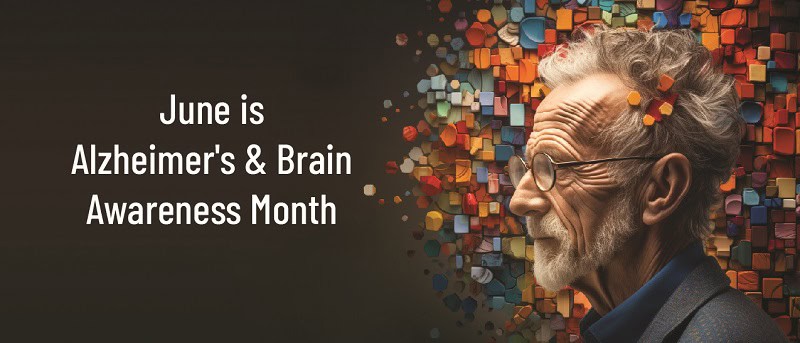1. Alzheimer’s is not a normal part of aging
Alzheimer’s disease is a brain disorder that slowly destroys memory and thinking skills and, eventually, the ability to carry out the simplest tasks. People with Alzheimer’s also experience changes in behavior and personality.
More than 6 million Americans, many of them age 65 and older, are estimated to have Alzheimer’s disease. That’s more individuals living with Alzheimer’s disease than the population of a large American city. Many more people experience Alzheimer's in their lives as family members and friends of those with the disease.
The symptoms of Alzheimer’s disease — changes in thinking, remembering, reasoning, and behavior — are known as dementia. That’s why Alzheimer’s is sometimes referred to as “dementia.” Other diseases and conditions can also cause dementia, with Alzheimer’s being the most common cause of dementia in older adults.
Alzheimer’s disease is not a normal part of aging. It’s the result of complex changes in the brain that start years before symptoms appear and lead to the loss of brain cells and their connections.
Source: alzheimers.gov
2. Alzheimer’s is rarely inherited
Just because a family member has Alzheimer's disease does not mean that you will get it, too. Most cases of Alzheimer's are late-onset. This form of the disease occurs in a person's mid-60s and is not linked to a specific change in genes. However, genetic factors appear to increase a person's risk of developing late-onset Alzheimer's.
Early-onset Alzheimer's disease, which is rare, can be caused by genetic variants, or changes in certain genes. If one of the genetic variants is passed down, the child will usually — but not always — have the disease. For other cases of early-onset Alzheimer's, research shows other genetic components are involved.
Source: National Institute on Aging
3. Alzheimer’s is one form of dementia
Alzheimer's disease is a type of dementia. Dementia is a loss of thinking, remembering, and reasoning skills that interferes with a person's daily life and activities. Alzheimer's disease is the most common cause of dementia among older people. Other types of dementia include frontotemporal disorders, Lewy body dementia, and vascular dementia.
Source: National Institute on Aging
4. The Early Signs of Dementia
Memory problems are typically one of the first signs of Alzheimer's disease, though different people may have different initial symptoms. A decline in other aspects of thinking, such as finding the right words, vision/spatial issues, and impaired reasoning or judgment, may also signal the very early stages of Alzheimer's disease.
Mild cognitive impairment, or MCI, is a condition that can also be an early sign of Alzheimer's disease — but not everyone with MCI will develop Alzheimer's. In addition to memory problems, movement difficulties and problems with the sense of smell have been linked to MCI. If you have MCI, it’s important to see a doctor or specialist regularly to monitor any changes in memory or thinking.
Source: National Institute on Aging
5. The Stages of Alzheimer’s
Alzheimer’s disease slowly gets worse over time. People with this disease progress at different rates and in several stages. Symptoms may get worse and then improve, but until an effective treatment for the disease itself is found, the person’s ability will continue to decline over the course of the disease.
Early-stage Alzheimer’s is when a person begins to experience memory loss and other cognitive difficulties, though the symptoms appear gradual to the person and their family. Alzheimer’s disease is often diagnosed at this stage.
During middle-stage Alzheimer’s, damage occurs in areas of the brain that control language, reasoning, sensory processing, and conscious thought. People at this stage may have more confusion and trouble recognizing family and friends.
In late-stage Alzheimer’s, a person cannot communicate, is completely dependent on others for care, and may be in bed most or all the time as the body shuts down.
How long a person can live with Alzheimer’s disease varies. A person may live as few as three or four years if he or she is older than 80 when diagnosed, to as long as 10 or more years if the person is younger. Older adults with Alzheimer’s disease need to know their end-of-life care options and express their wishes to caregivers as early as possible after a diagnosis, before their thinking and speaking abilities fail.
Source: alzheimers.gov

